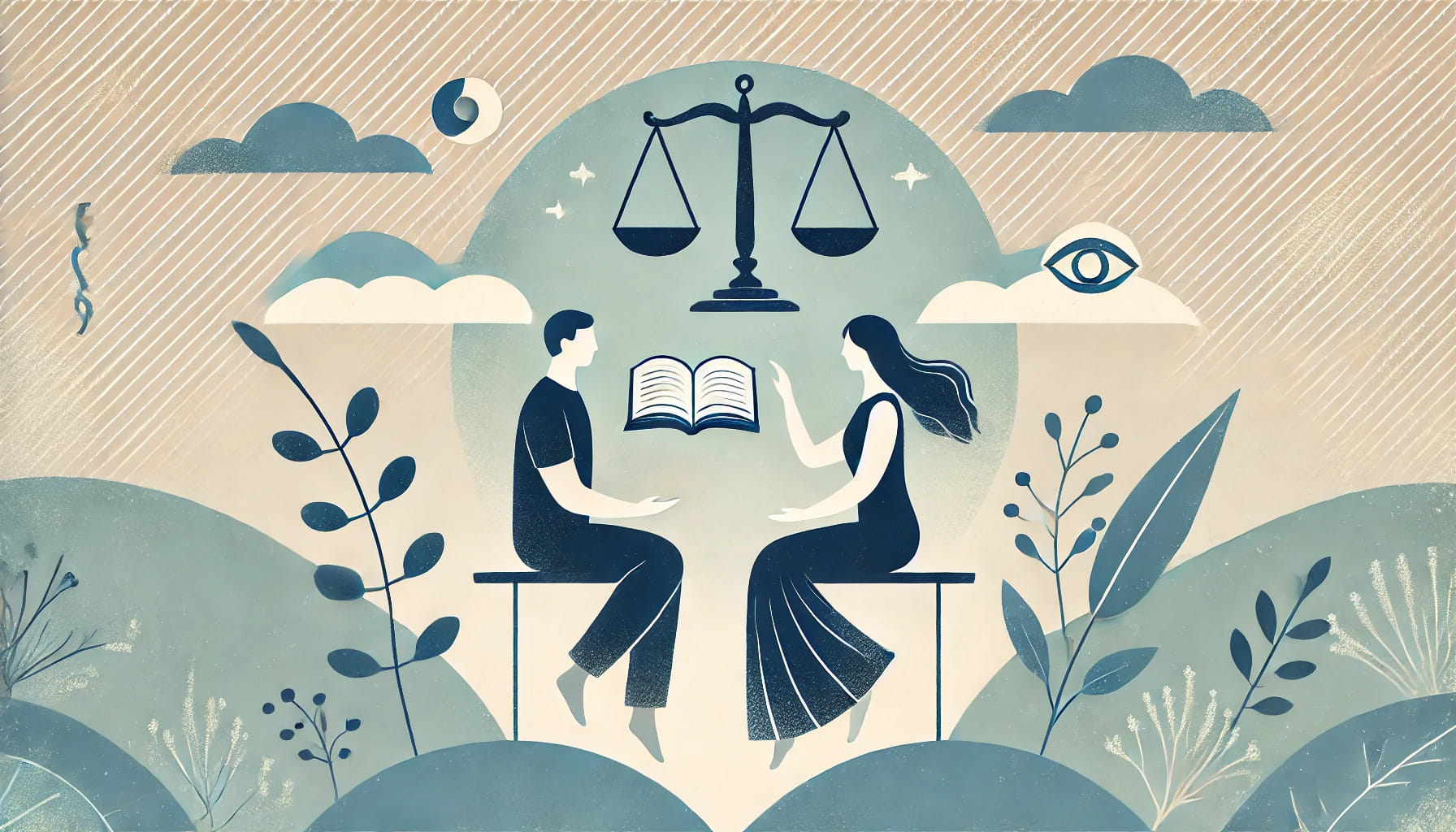Relationships are a vital aspect of human life, offering connection, growth, and mutual support. However, they also bring challenges that require emotional resilience and thoughtful navigation. Stoicism, a philosophy centered on self-mastery and virtue, provides valuable insights for maintaining balance in relationships by fostering both independence and compassion. By applying Stoic principles, individuals can nurture healthy, fulfilling connections while staying grounded in their values.
This essay explores how Stoicism can help strike the delicate balance between independence and compassion in relationships.
The Stoic Perspective on Relationships
The Stoics viewed relationships as opportunities to practice virtue—such as patience, justice, and kindness—while recognizing the importance of maintaining personal autonomy. Marcus Aurelius, in his Meditations, wrote, “Be tolerant with others and strict with yourself.” This advice encapsulates the Stoic approach: offering compassion to others while upholding personal accountability.
Stoicism emphasizes the dichotomy of control, reminding us that we cannot control others’ actions or emotions—only our own. This principle allows us to engage in relationships with empathy and care, without losing ourselves in attempts to manage or fix others.
Balancing Independence and Compassion
- The Importance of Independence
Stoicism teaches that true freedom lies in self-control and inner strength. In relationships, this means maintaining a sense of individuality and not becoming overly dependent on another person for happiness or validation. By cultivating independence, individuals can avoid common pitfalls such as codependency or losing sight of their values. Stoicism encourages us to find fulfillment within ourselves, ensuring that relationships enhance our lives rather than define them. - The Role of Compassion
While Stoicism values independence, it also emphasizes the interconnectedness of humanity. The Stoics believed in practicing justice and kindness toward others, recognizing that relationships thrive on mutual respect and understanding. Compassion in relationships means offering support without judgment, being present for others in times of need, and acting with empathy. It also involves forgiving imperfections, as no one is immune to mistakes. - Finding the Balance
Striking a balance between independence and compassion requires self-awareness and intentional effort. Stoicism teaches us to approach relationships with a sense of proportion: giving love and care generously but not at the expense of our well-being or principles. For example, you can listen actively to a partner’s concerns while setting boundaries to protect your mental health. This balance fosters mutual respect and allows both individuals to grow together without sacrificing their individuality.
Stoic Practices for Relationship Growth
- Daily Reflection
Take time each day to reflect on your interactions. Ask yourself: Did I act with kindness and integrity? Did I maintain my sense of self? This practice helps identify areas for improvement and reinforces virtuous behavior. - Practice Active Listening
Stoicism encourages being fully present in the moment. In relationships, this means listening without interrupting or planning a response. Active listening fosters understanding and strengthens emotional connections. - Negative Visualization
Consider the impermanence of relationships to appreciate their value. Reflecting on the possibility of change or loss can help you cherish the present and approach interactions with gratitude. - Set Healthy Boundaries
Define and communicate your needs and limits respectfully. Boundaries ensure that compassion does not lead to self-neglect and that independence does not create emotional distance.
The Benefits of Stoic Principles in Relationships
Applying Stoic principles to relationships offers numerous benefits:
- Emotional Stability: Stoicism helps manage emotional reactions, reducing conflict and misunderstandings.
- Mutual Growth: Balancing independence and compassion allows both individuals to grow and support each other.
- Deeper Connections: Practicing presence, gratitude, and empathy fosters stronger, more meaningful bonds.
- Resilience in Challenges: Stoicism provides tools to navigate difficulties with grace and understanding.
Conclusion: A Stoic Approach to Fulfilling Relationships
Stoicism offers timeless wisdom for navigating the complexities of relationships, teaching us to balance independence with compassion. By cultivating inner strength and practicing kindness, we can build connections rooted in mutual respect and genuine care.
As Epictetus wrote, “He who is noble and self-sufficient is never alone.” This philosophy reminds us that healthy relationships stem from individuals who are secure in themselves, yet open to sharing their lives with others. With Stoicism as a guide, relationships become opportunities for growth, love, and the practice of virtue.

